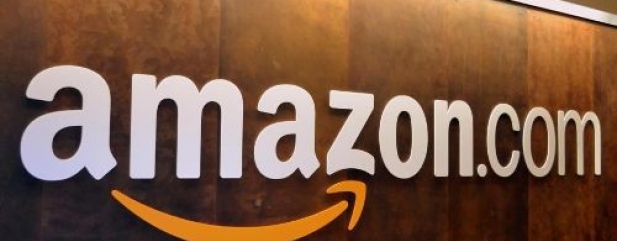Archived article
Please note that tax, investment, pension and ISA rules can change and the information and any views contained in this article may now be inaccurate.
What Amazon’s Whole Foods deal means for UK grocers

A shock $13.7bn (£10.8bn) swoop (16 Jun) on organic grocer Whole Foods Market by Amazon has caused jitters among UK-listed grocers. Shares in Tesco (TSCO), Marks & Spencer (MKS) and Sainsbury’s (SBRY) swooned on the news, as the putative Amazon-Whole Foods tie-up demonstrates the tech firm is betting big on groceries. Given Amazon’s charge’s scale and technological prowess, the acquisition has negative implications for grocers’ already-squeezed margins.
The e-commerce retail juggernaut’s takeover of Whole Foods, which operates 456 US stores but only nine in the UK, takes Amazon deeper into the food space.
A big concern is that Amazon, which has a wholesale tie-up with WM Morrison Supermarkets (MRW) and launched Amazon Fresh in the UK last summer, will use its vast buying power to subsidise the food category to get customers to shop for groceries on its website.
Supermarkets set to be ‘sandwiched’
Markets have form in overreacting when corporate giants crash into new markets and Amazon’s move demonstrates that food retailing is incredibly tricky for purely online players. But as Morgan Stanley explains: ‘It will likely translate into the listed grocers being further “sandwiched” between privately-owned discounters and online operators.
Given the low growth of the industry, likely lack of capacity rationalisation in Europe’s main national markets in the foreseeable future, as well as lack of consolidation (at a pan European or national level), this will likely lead to flat earnings growth in the medium term.’
Who’s in play?
Partly supplying the Amazon’s existing food offering in the UK, Morrisons’ shares were marked up on the day on bid hopes. Alongside Ocado (OCDO), Morrisons is viewed as the most likely takeover target should a wave of defensive mergers begin.
Ocado will see greater competition in its core UK business if Amazon steps-up its assault on the British market, yet the move has positive implications for the strategic value of its online grocery business platform. Even if Ocado isn’t Amazon’s next takeover target, the probability of a partnership has increased.
The Whole Foods acquisition clobbered shares in Tesco, planning a £3.7bn takeover of wholesaler Booker (BOK). The positive sentiment stoked by Tesco’s strong first quarter update (16 Jun) quickly dissipated on the news. Meanwhile, Sainsbury’s move to acquire convenience chain Nisa is another defensive move. The grocer is keen to expand its convenience business with discounters Aldi and Lidl gorging on UK market share. (JC)
Important information:
These articles are provided by Shares magazine which is published by AJ Bell Media, a part of AJ Bell. Shares is not written by AJ Bell.
Shares is provided for your general information and use and is not a personal recommendation to invest. It is not intended to be relied upon by you in making or not making any investment decisions. The investments referred to in these articles will not be suitable for all investors. If in doubt please seek appropriate independent financial advice.
Investors acting on the information in these articles do so at their own risk and AJ Bell Media and its staff do not accept liability for losses suffered by investors as a result of their investment decisions.
 magazine
magazine









